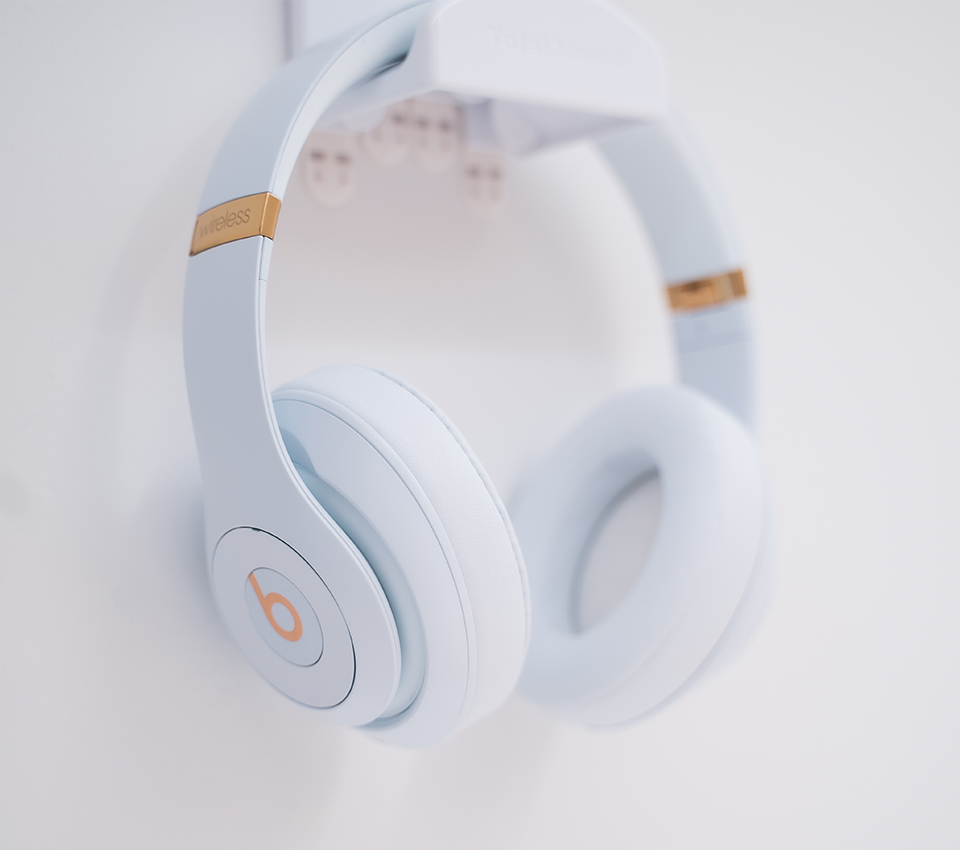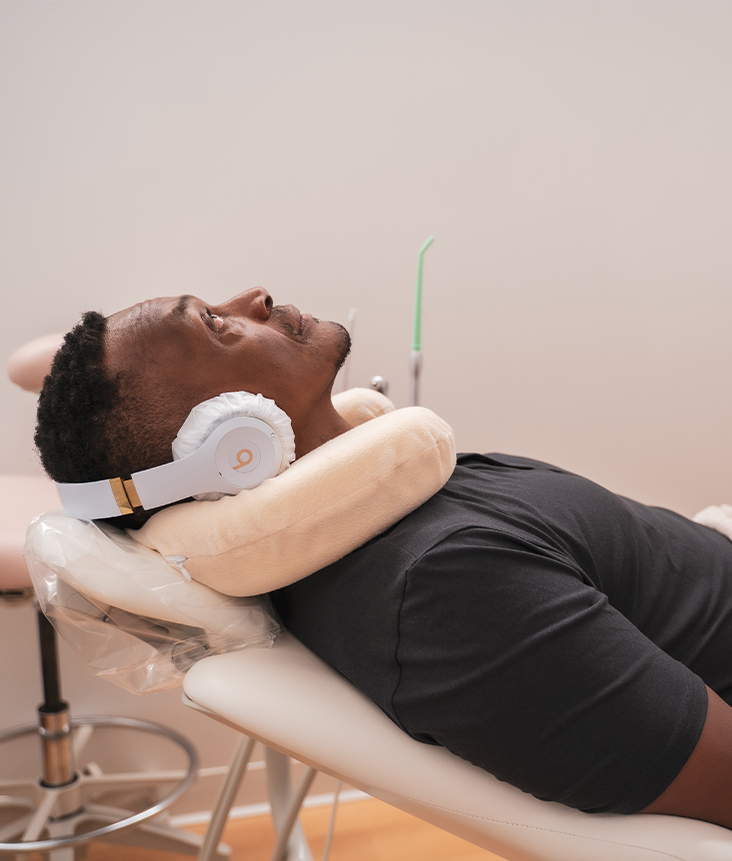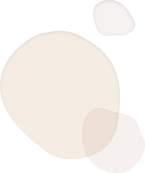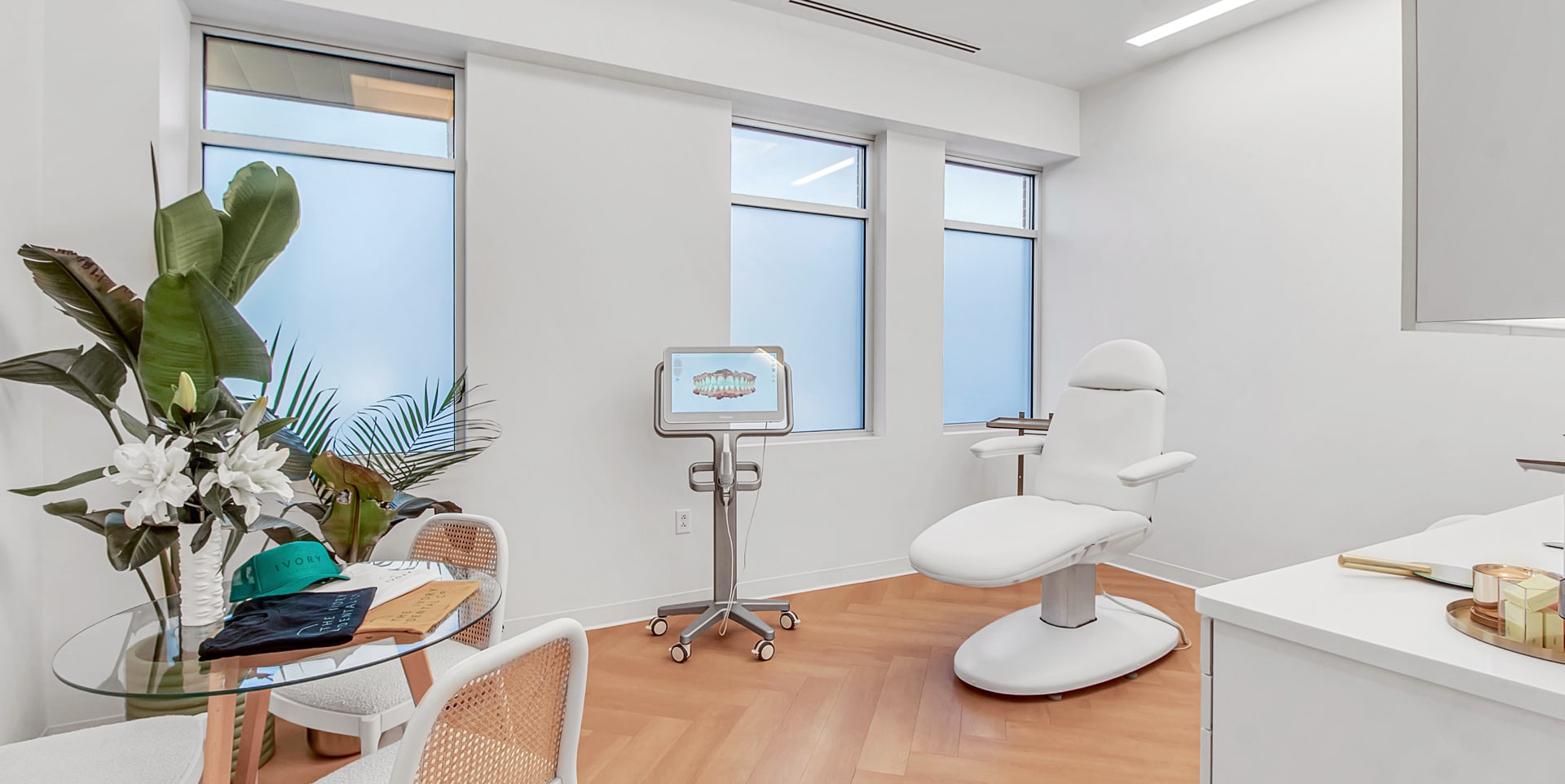
Restore Your Comfort
At The Ivory, we truly believe that radiant smiles start with genuine comfort. Whether you’re struggling with oral health issues that keep you up at night or dealing with an aching jaw, we’re here to make a difference.
Dr. Sweeney can identify, treat, and manage oral issues that contribute to sleep apnea, helping you breathe a little easier. And if habitual night grinding and clenching are affecting the health or appearance of your teeth, The Ivory can provide personalized restorative treatments.
Experience the bliss of relaxation and genuine care. Book your consultation at The Ivory Dental Co. today.

What Is Sleep Apnea?
Sleep apnea is a disorder that disrupts the rhythm of breathing, causing repeated stops and starts.
The most common type, obstructive sleep apnea (OSA), occurs when throat muscles and tongue relax, blocking airflow to the lungs. Common signs include loud snoring, waking up with a dry mouth, and feeling tired even after a full night’s sleep.
How is Sleep Apnea Treated?
At The Ivory, we can screen for sleep apnea with X-rays and refer you to an accredited sleep study for diagnosis. With Dr. Sweeney’s intimate knowledge of human anatomy, she can identify warning signs that can impact your airways, such as enlarged tissue, acid reflux, bruxism, or an enlarged tongue.
Treating sleep apnea is crucial as it can lead to serious health issues if left untreated. Those with sleep apnea are at a higher risk of developing type 2 diabetes, heart disease, strokes, heart attacks, and a shortened lifespan.
If you have mild to moderate sleep apnea, there are a variety of treatments available at The Ivory.
A mandibular advancement device is an oral appliance crafted from durable plastic, much like a retainer. It uses metal hinges that temporarily but securely attach to your teeth. The oral appliance is worn while you sleep to help shift your lower jaw forward and keep the airway open.
For patients whose tongue is the source of trouble, lingual tongue buttons can be added to your oral sleep apnea appliance to guide the tongue up and forward to the palate.
This adds gentle tongue training and repositioning for improved tongue placement, better swallowing and improved sleep treatment.
What Is TMJ & TMJD?
The temporomandibular joint (TMJ) is the hinge that connects your jaw to your skull. It’s a wonderfully complex joint, allowing for the full range of motion we need to chew our favorite foods and converse with our favorite people.
When this joint becomes dysfunctional, it’s known as temporomandibular joint disorder (TMJD). If you’re experiencing jaw discomfort, clenching and grinding (bruxism), or noticing your teeth are worn, then you may need treatment.
TMJ problems can develop for a number of reasons, with common conditions including bruxism, bite misalignment, arthritis, and jaw injuries.
TMJD can result in many uncomfortable symptoms, ranging from severe pain and migraines to difficulty opening the jaw, lockjaw, and jaw clicking or popping. Other signs include difficulty chewing, earaches, facial aches, and fatigued facial muscles.
Bruxism, a common cause of TMJD, can be quite a challenge to address. Often, grinding or clenching occurs out of habit or even during sleep, making it harder to break the cycle. It takes dedicated support to stop this habit, especially when you’re not even aware you’re doing it.
Seeking treatment for teeth grinding and TMJ dysfunction is important. The longer you let TMJD progress, the higher the chance it can significantly impact your teeth, jaw, and gums.
The act of clenching and grinding exerts an immense amount of pressure on your teeth. While regular chewing exerts around 20–40 lbs of pressure, grinding can cause a staggering 200 lbs of force. This excessive pressure can result in enamel erosion, tooth fractures, or even gum recession.

Relief from TMD & Bruxism: Your Treatment Options
Night Guard
Experience a peaceful night’s slumber, free from the disruptive effects of bruxism.
Night guards, just like mouthguards worn for sports, offer customized protection. Wearing a night guard cushions your teeth while you sleep to help prevent teeth damage to your teeth from grinding and jaw clenching.
Crafted from acrylic materials, your night guard is tailored to the contours of your mouth, offering a comfortable and secure fit.
The result? Soothing relief from discomfort and the wear and tear associated with bruxism and TMD.
Neuromodulator Injections
It’s more than a cosmetic injectable for fine lines. Neuromodulators, can work as a therapeutic marvel to relieve the overworked, tight muscles in your jaw, temples, and forehead.
The effect is a profound relaxation in the muscles that trigger the involuntary clenching of your jaw. The treatment lasts about 3-6 months, during which we aim to re-train your muscle groups and gradually reduce clenching habits.
While the results are often long-lasting, repeated injections can help provide continued relief.

Your Comfort Is Our Priority at The Ivory
Your comfort is more than a convenience.
Join us at The Ivory so we can work together to take care of your precious smile. Schedule your consultation today to discover how we can provide support for sleep apnea or TMJ concerns.
Our Services

Our Location
Our Address
- 6043 Transit Rd. Suite 102
- East Amherst, NY 14051
Contact Information
- Phone: 716-221-0042
- Email: [email protected]
Find our building on Transit Road across from the Transit Valley Country Club located in the Transit Meadows Medical & Professional Park. The spacious parking lot offers plenty of convenient spots.
Our Hours
- Monday: 8:00 AM – 5:00 PM
- Tuesday: 9:30 AM – 5:00 PM
- Wednesday: 8:00 AM – 5:00 PM
- Thursday: 8:00 AM – 5:00 PM
- Friday: by special appointment
- Saturday: Closed
- Sunday: Closed
Our Google Reviews
What Our Patients Say
Lorem ipsum dolor sit amet, consectetur adipiscing elit, sed do eiusmod tempor incididunt ut labore et dolore magna aliqua. Ut enim ad minim veniam, quis nostrud exercitation ullamco laboris nisi ut aliquip ex ea commodo consequat. Duis aute irure dolor in reprehenderit in voluptate velit esse cillum dolore eu fugiat nulla pariatur.
Tainer
Lorem ipsum dolor sit amet, consectetur adipiscing elit, sed do eiusmod tempor incididunt ut labore et dolore magna aliqua. Ut enim ad minim veniam, quis nostrud exercitation ullamco laboris nisi ut aliquip ex ea commodo consequat. Duis aute irure dolor in r
Trevor
consectetur adipiscing elit, sed do eiusmod tempor incididunt ut labore et dolore magna aliqua. Ut enim ad minim veniam, quis nostrud exercitation ullamco laboris nisi ut aliquip ex ea commodo consequat. Duis aute irure dolor in reprehenderit in voluptate velit esse cillum dolore eu fugiat nulla pariatur.
Jessica

Connect with us

Follow Us on Instagram
Error: No feed with the ID 1 found.
Please go to the Instagram Feed settings page to create a feed.















